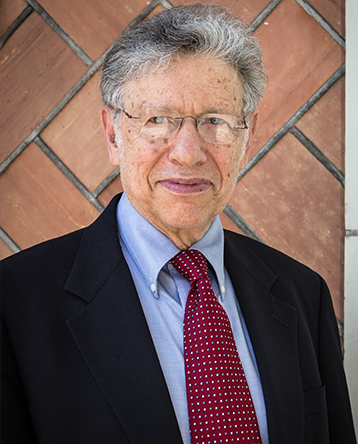Jacobo Bielak
Hamerschlag University Professor Emeritus
Hamerschlag University Professor Emeritus

Jacobo Bielak is Hamerschlag University Professor Emeritus in the Department of Civil and Environmental Engineering at Carnegie Mellon University. His research interests are in earthquake engineering, engineering seismology, computational seismology, computational mechanics, and structural health monitoring. Bielak was a member of the original Applied Technology Council (ATC) committee that drafted the first seismic provisions for soil-structure interaction in the US, based mainly on his work. These provisions are now, in modified form, part of the National Earthquake Hazards Reduction Program (NEHRP) seismic provisions.
He has received the Gordon Bell Prize for Special Accomplishment Based on Innovation. He is a Member of the National Academy of Engineering, a Distinguished Member of the American Society of Civil Engineers, and a Fellow of the U.S. Association for Computational Mechanics. He is an Honorary Member of the Earthquake Engineering Research Institute and a Corresponding Member of the Mexican Academy of Sciences and of the Mexican Academy of Engineering.
Bielak received his civil engineer’s degree from the National University of Mexico (UNAM), M.S. from Rice University, and Ph.D. from Caltech.
1971 Ph.D., California Institute of Technology
1996 MS, Rice University
1963 BS, Universidad Nacional Autonoma de Mexico
CMU Engineering
Amit Acharya is leading a multidisciplinary, university-spanning team in an NSF Grand Convergence Research project to unravel one of the most ubiquitous physical phenomena known to science.
Civil and Environmental Engineering
The Earthquake Engineering Research Institute is the leading professional organization that connects those dedicated to reducing earthquake risk.
CMU Engineering
Civil engineers are using ANSYS software to monitor infrastructure systems.
CMU Engineering
Through endowed professorships, the college honors and supports faculty by providing the resources they need to remain at the forefront of their fields.